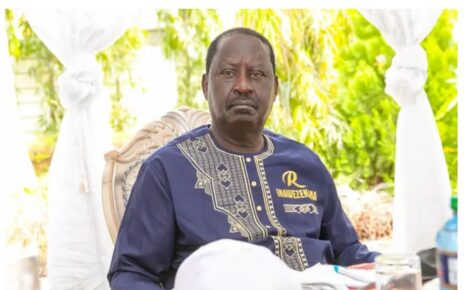In a bold political statement that has sparked national debate, Cabinet Secretary Opiyo Wandayi declared that “Sisi Wajaluo tutabaki kwa serikali kwa sababu hapo ndipo Baba alituacha. Tutahakikisha Ruto amepata term yake ya pili.” The remarks, loosely translated as “We, the Luo community, will remain in government because that is where Baba (Raila Odinga) left us. We will ensure President Ruto gets his second term,” mark a significant shift in Kenya’s political alignment narrative.
For decades, the Luo community has been perceived as being in the opposition, largely due to their unwavering support for Raila Odinga. However, Wandayi’s statement signals a new era of political pragmatism—one that recognizes the need for national inclusion over historical rivalry. His words suggest that the Luo community, long associated with opposition politics, is now ready to work within government structures to advance development and representation.
Wandayi’s message also reflects a deeper understanding of political continuity. By saying “hapo ndipo Baba alituacha,” he implies that Raila Odinga’s decision to cooperate with President Ruto before his passing (or retirement, depending on the context) was not a betrayal of his legacy, but rather a strategic move to ensure the community remains relevant in the national agenda. This shift could reshape Kenya’s political landscape, bridging long-standing ethnic divides and promoting national unity.
Politically, this statement aligns with President Ruto’s narrative of inclusivity under the “Bottom-Up” model. Having key Luo leaders publicly pledge loyalty to his administration strengthens Ruto’s national appeal and weakens the traditional opposition strongholds. For Wandayi, it positions him as a unifying leader ready to steer the Luo community into a new chapter of political engagement and influence.
However, not everyone may view this move positively. Critics might argue that such allegiance undermines democracy by blurring the line between government and opposition. Others may see it as political survival—a way for leaders to secure positions and resources within the ruling government. Still, for many Kenyans weary of divisive politics, Wandayi’s words could be a refreshing call for unity and collaboration across ethnic and political lines.
CS Opiyo Wandayi’s statement is more than just a political declaration—it’s a reflection of Kenya’s evolving democracy. If implemented with sincerity, his call for the Luo community to remain in government could pave the way for a more inclusive, development-driven political future. But if driven by personal or political gain, it risks reinforcing the same cycles of opportunism that have long defined Kenyan politics.



